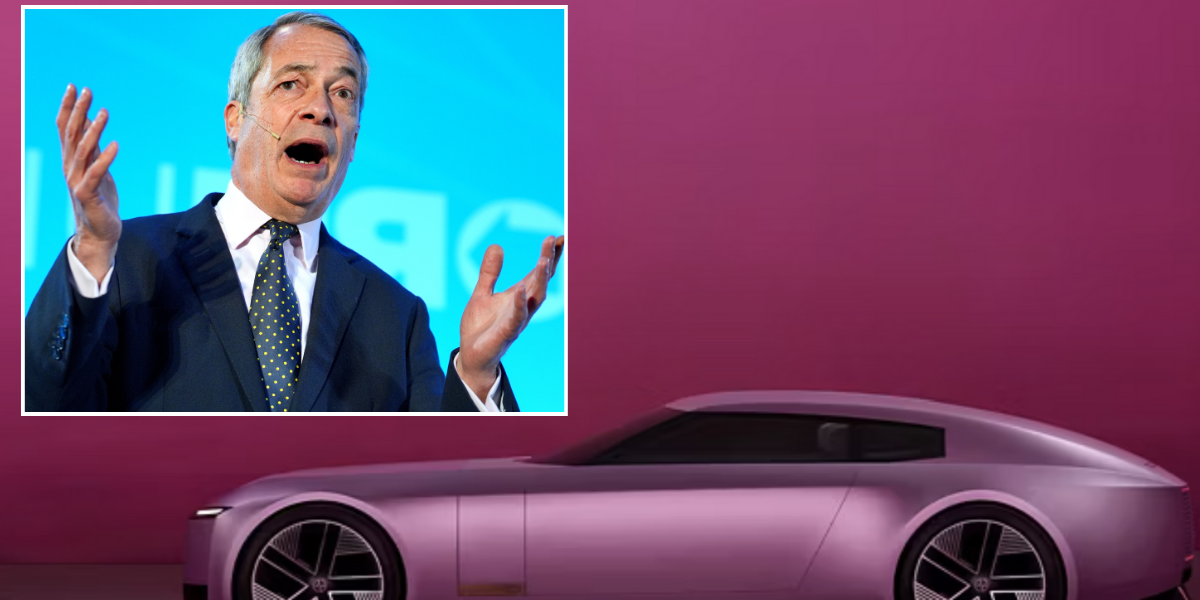Jaguar car sales have plummeted by more than a quarter in data released after the company launched its “woke” rebrand.
New industry registration figures released by its parent company, Jaguar Land Rover (JLR), indicated that the number of vehicles sold by the firm dropped dropped to 33,320 from 45,779 last year – a difference of 12,459.
The company has been blasted for dropping its iconic “growler” badge, opting to replace it with a “J” badge last year.
In response to their slumping sales – although the data was almost entirely from before its rebrand – Reform UK leader Nigel Farage relished the news, declaring: “Go woke, go broke!”
Such controversial changes which Jaguar had made – which received significant backlash from long-term fans – included the introduction of a bright pink concept car, which aimed at renewing the company’s image as it transitioned to the electric age.
This latest concept was released at the same time Jaguar paused the production of five other models as it focused on developing a new range of electric vehicles targeted at their younger generations.
Meanwhile, demand for the company’s Range Rover and Defender models increased.
Its rebrand is the result of a three-year-long process as the firm gears up to become an all-electric car manufacturer before Keir Starmer’s 2030 target to drop all fossil fuel-powered vehicles.
LATEST DEVELOPMENTS:
A group of approximately 800 people are reported to have worked on the shift towards EVs.
Jaguar chief Rawdon Glover has said: “We need to change people’s perceptions of what Jaguar stands for.”
Nigel Farage warned the company that its rebrand would bankrupt the firm altogether, as other critics hit out at the firm calling the move “woke” and “unhinged”.
Californian designer Joseph Alessio said that its makeover would be “taught in schools as how not to do a rebrand”.
Glover slammed Jaguar’s critics, condemning the “vile hatred and intolerance” which came about as his firm announced its new line of EVs.
He insisted that Jaguar must step away from “traditional automotive stereotypes”.
Adding that the wider reaction to his campaign was “very positive”, he felt disappointed by the “level of vile hatred and intolerance” targeted at the models in the ad, Glover told the Financial Times.
He said: “If we play in the same way that everybody else does, we’ll just get drowned out. So we shouldn’t turn up like an auto brand.”
“We need to re-establish our brand and at a completely different price point so we need to act differently. We wanted to move away from traditional automotive stereotypes.”











